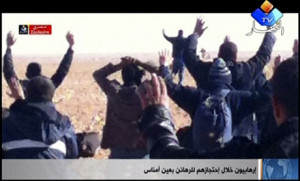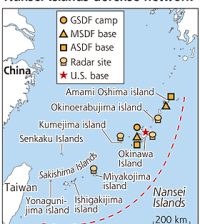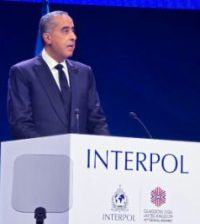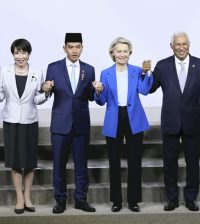- Washington “follows with interest” Morocco’s openness onto Africa (John Kerry)Posted 12 years ago
- The trial of South African Paralympic champion Oscar Pistorius opened in Pretoria on Monday.Posted 12 years ago
- USA welcomes efforts of King Mohammed VI in MaliPosted 12 years ago
- Egypt’s population reaches 94 millionPosted 12 years ago
- Mugabe celebrates his 90thPosted 12 years ago
- Moroccan Monarch to Build a Perinatal Clinic in BamakoPosted 12 years ago
- King Mohammed VI handed a donation of bovine semen for the benefit of Malian breeders.Posted 12 years ago
- Moroccan King’s strategic tour to Africa: Strengthening the will of pan African Solidarity and stimulating the south-south cooperation mechanisms over the continentPosted 13 years ago
- Senior al-Qaida leader killed in AlgeriaPosted 13 years ago
- Libya: The trial of former Prime Minister al-Baghdadi AliPosted 13 years ago
One Year After In-Amenas Terrorist attacks : Japanese are still not satisfied with Algerian justifications
 One year has passed after In-Amenas Terrorist attacks in Algeria, when dozens of foreigners were killed during a four-day standoff that ended in a bloody showdown with Algerian commandos in In Amenas on January 31, 2013.
One year has passed after In-Amenas Terrorist attacks in Algeria, when dozens of foreigners were killed during a four-day standoff that ended in a bloody showdown with Algerian commandos in In Amenas on January 31, 2013.
Japanese public opinion is still not satisfied with the Algerian controversial military intervention to end the bloody seizure by armed Islamists last year of the In Amenas desert gas plant, in which 38 hostages were killed
The hostage raid was masterminded by veteran jihadist Mokhtar Belmokhtar whose breakaway Al-Qaeda group “Signatories in Blood” claimed the four-day siege, saying it was in retaliation for France’s military intervention against Islamist militants in Mali.
The spectacular assault on the isolated facility, which was jointly operated by British oil giant BP and Norway’s Statoil, ended in a bloodbath, with 38 hostages, all but one of them foreign, killed by the time the army ended the crisis, as well as 29 militants.
Japan emerged with the biggest death toll of any country. With 10 dead, it was the biggest loss of Japanese lives overseas since the 9/11, in which 24 were killed. One of the Japanese victims, Rokuro Fuchida, 64, had written on Facebook that he was looking forward to his assignment in Algeria. “I work around the world to see the glittering night-time skies of foreign lands,” he said. “I look forward to seeing the starry sky above the desert. By the smashed desert with terrorists has closed down his dream.
After the attack, Algeria said it was beefing up the protection of facilities run by foreign oil companies. From the Japanese side, the public opinion is still doubtful about the official version of Algerian authorities, and estimates that Excessive use of force by Algerian army, was behind the hasten death of such a large number of hostages.
On the background of these events, Japan has decided to strengthen its intelligence capabilities in Africa by next April 2014.
It should be noted also that Japanese Public Security Intelligence Agency has published its 2013 report on terrorist groups, in which It has updated the terrorist groups’ list, and included new groups from Mali, south of Algeria, such as Polisario guerrilla as a connected movement to al-Qaeda.




